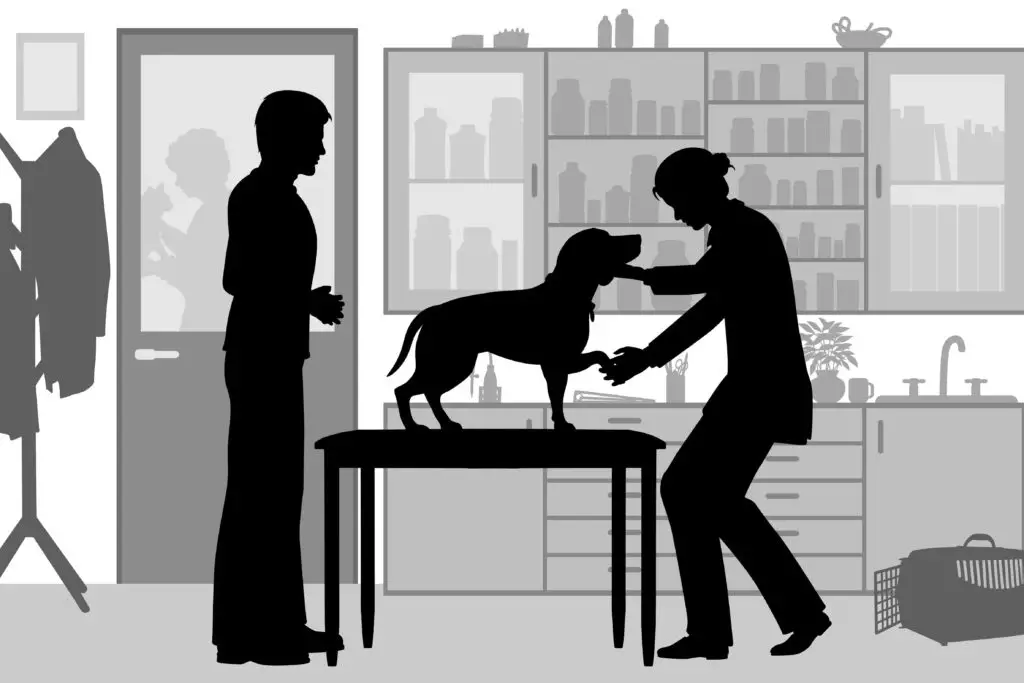Probiotics can be described as friendly bacteria. Dogs and all other animals have so many of these bacteria in their body. The bacteria help them when fighting infections, digesting food, making their immune system stronger, and making nutrients and vitamins.
This process is known as the microbiome. If you want your dog to be healthy, then you need to start by making sure that the dog has a healthy microbiome.
When there are changes in the microbiome of your dog, it might get illnesses such as bloating, general poor health, bad breath, upset stomach, allergies, gas, obesity, cramping, and diarrhea.
The changes in the microbiome are caused by a number of things, among them, weaning, antibiotics, infections, changes in food, infections, stress, and parasites.
This means that if you have a dog that gets sick quite often, the reason could be because of changes to its microbiome. You need to ensure that the dog gets healthy food and consult your veterinarian before administering any drugs.
Probiotics for Dogs
That notwithstanding, the good news to dog owners is that probiotics have been proven to cure most of these diseases and improve the gut health of their dogs.
Why are we talking about gut health? Well, someone once said that all diseases start from the gut. This means that keeping the gut of your dog healthy is key to having a healthy dog.
One of the proven ways of doing that is through the use of probiotics.

According to this guide to probiotics for dogs, probiotics help improve the health of a dog in many ways. Some of them include;
- Supporting the immune system.
- Reducing allergies and gastrointestinal problems.
- Aiding the digestive system.
- Promoting the production and absorption of nutrients.
- Supporting the health of the dog’s skin.
- Getting rid of toxins from the dog’s body.
- Ensuring the dog lives a stress-free life.
Pros of Probiotics
Just like the pros exhibited by probiotics in humans, probiotics for dogs have similar advantages when administered to a dog. In dogs, they play an important role in regulating the digestive and intestinal health of the dog.

They are also important when boosting the dog’s energy as well as creating healthy skin and coat. Probiotics also get rid of rashes and yeast infections that are common in dogs.
In addition, giving probiotics to your dog helps in fighting flatulence, diarrhea, bloating, bad breath, and constipation. If you have a dog that has a problem with shedding, then you can consider giving it probiotics. They help in fighting shedding and restoring healthy skin.
Although we do not have a certain prescription for probiotics for dogs, it is important to seek advice from a veterinarian for you to understand everything about them. Some dog owners might want to get probiotics for their dogs just because of the health benefits that come with them.
In that case, you can simply get them from a pet store. Those that are getting probiotics to cure a certain disease or illness should first consult a veterinarian.
Cons of Probiotics
Even though probiotics play an important role in keeping a dog healthy, there are situations when the dog might develop severe symptoms before they start healing or getting healthier after they start using probiotics.
In some cases, the dog might start showing other symptoms that it did not even have. This might leave dog owners frightened, but one should consult their veterinarian once it happens.

Additionally, your dog might start showing some side effects once they start taking probiotics. These side effects might include things such as constipation, gas, bloating, and diarrhea.
However, this should not be a cause for alarm since the side effects will disappear once the dog gets used to the probiotics.
Conclusion
Probiotics will ensure that the gut of your dog is healthy. However, you need to consult your veterinarian when treating any ailments in your dogs.
For instance, if you have a dog with a digestive problem, you should first consult a veterinarian to find out if the dog could be having another health condition affecting the digestive system. This way, you will know whether to use probiotics or something else.






